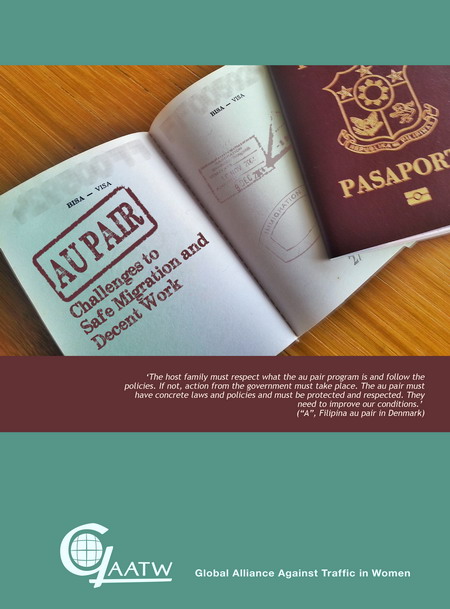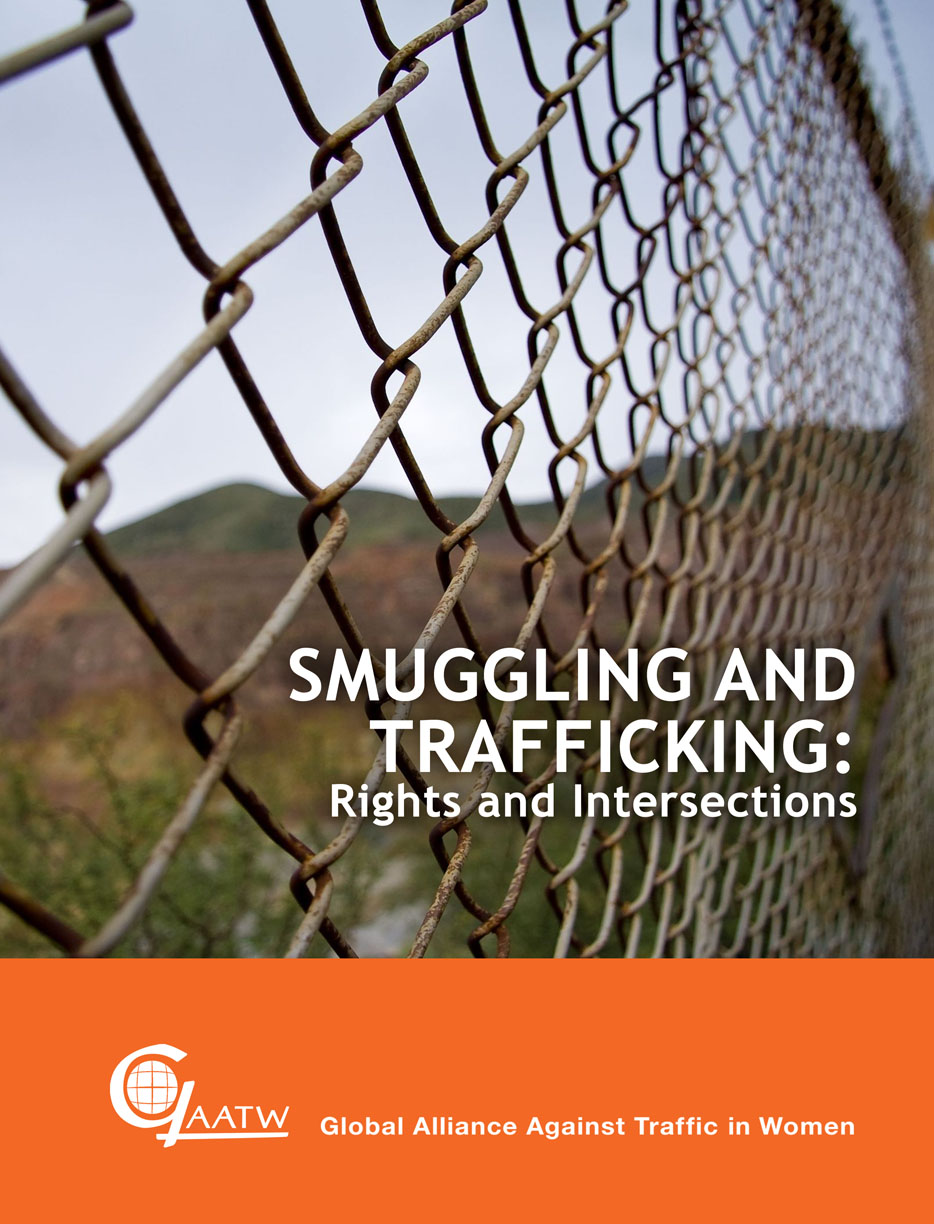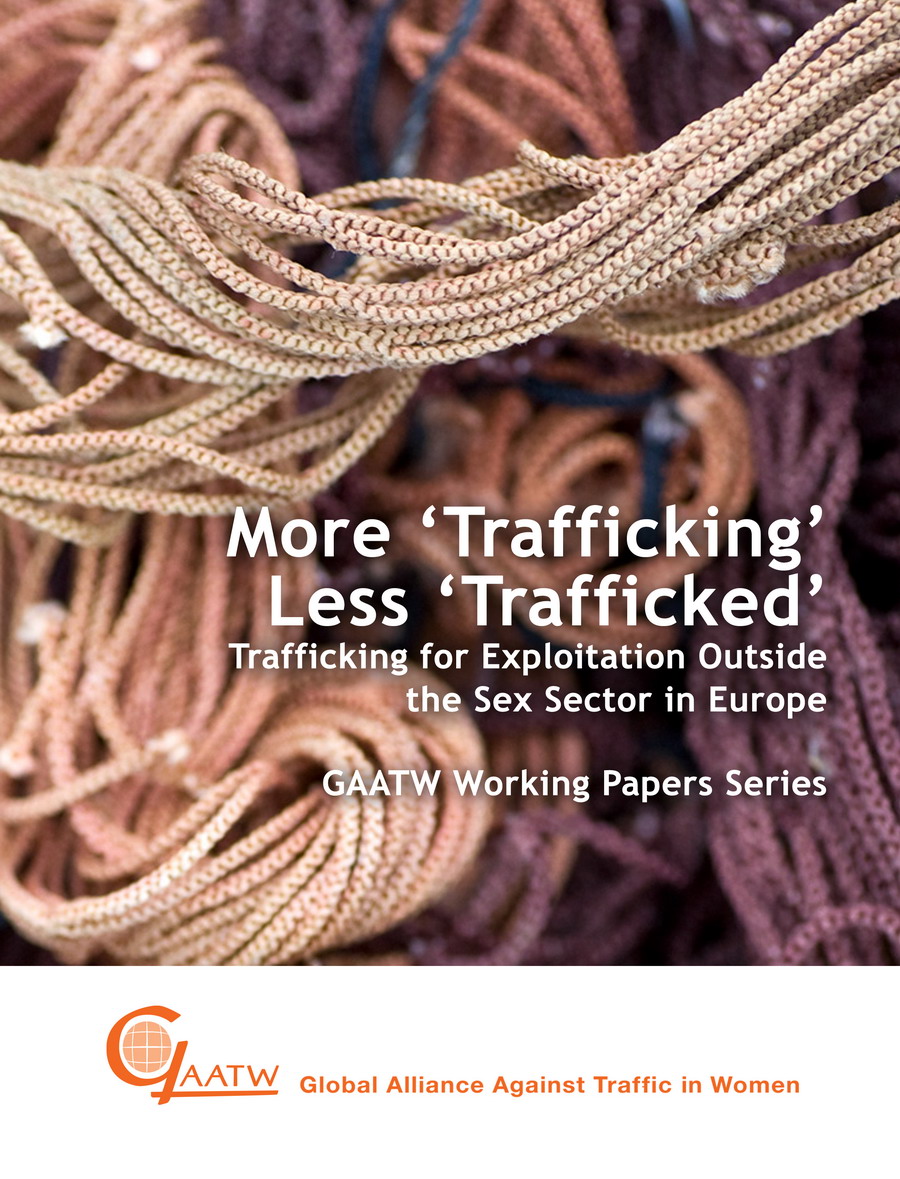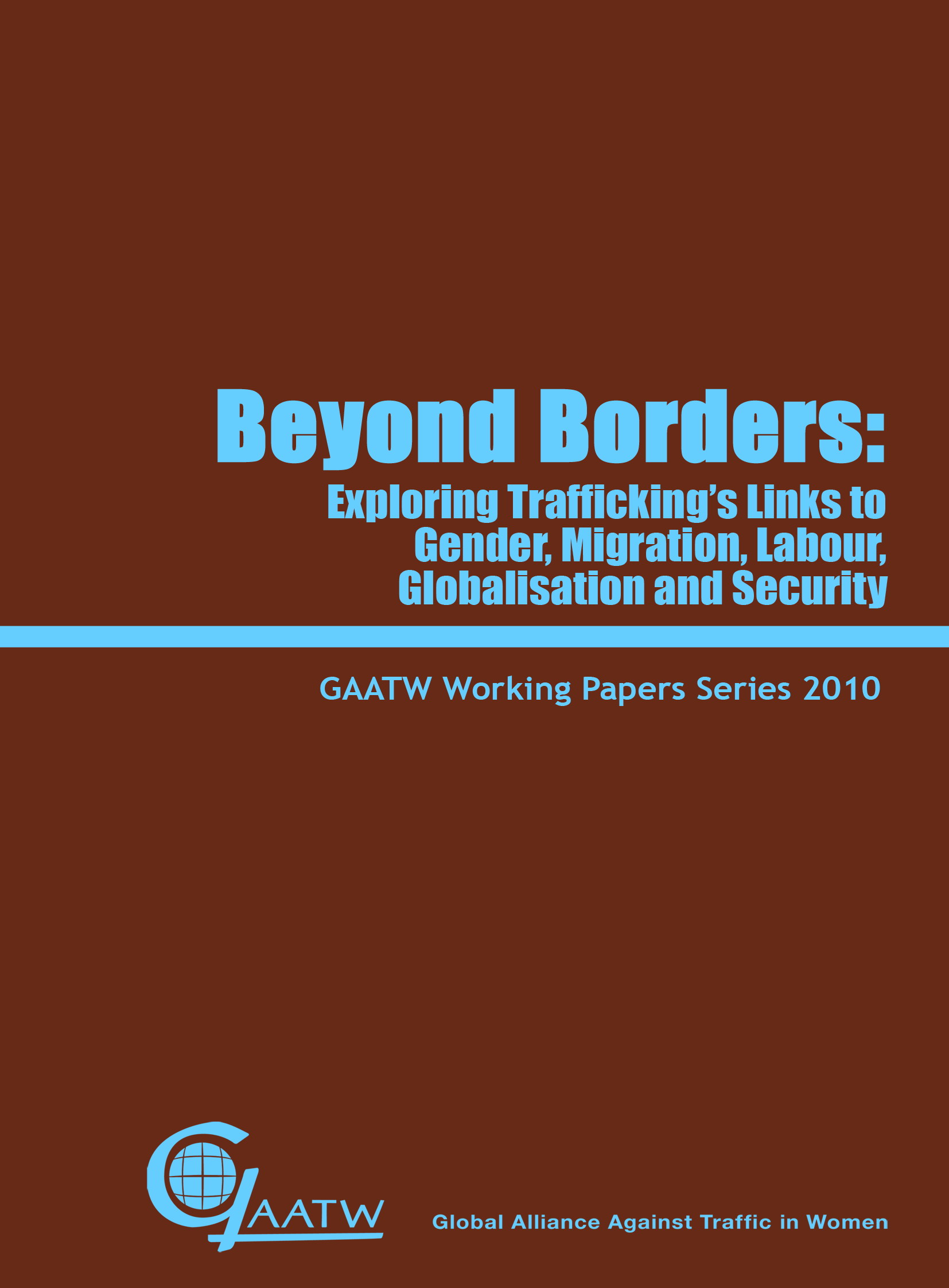
AU PAIR: Challenges to safe migration and decent work
In GAATW’s 2010 Working Paper Series Beyond Borders, links between trafficking and migration, labour, gender and security are explored and developed conceptually. This working paper seeks to build on the earlier work by developing a practical understanding of safe migration, with specific reference to a case study on au pair migration.
The scope for this research focus on Filipina au pairs in three European countries: Denmark, Norway and the Netherlands, which are the top receivers of au pair migrants from the Philippines. This working paper provides an overview of the existing policies on au pair migration in these three countries and also includes a case study of the situations and experiences of Filipina au pairs in one country of destination: Denmark.
This paper includes three separate sections of analysis which are summed up in a chapter on recommendations at the end. The first section gives an introduction to safe migration, in particular, to its challenges, and considers how concepts related to safe migration can be linked to au pair migration. The second section presents existing policies and regulations of the country of origin (the Philippines) and the destination countries (Denmark, Norway and the Netherlands). The third section presents the findings of a case study of Filipina au pairs in Denmark. The final section of the report seeks to address the challenges identified in the analysis by setting out a range of recommendations to be considered by policy makers.

Smuggling and Trafficking: Rights and Intersections
GAATW Working Paper Series
GAATW is increasingly concerned with immigration measures that criminalise migrants and badly affect trafficked people. Many of these policies are framed as ‘anti-smuggling’ measures. We chose to look at smuggling partly because the Smuggling Protocol sits in the same UN convention as the Trafficking Protocol and receives much less attention, especially in terms of human rights.
GAATW members also struggle with smuggling in terms of misidentification. When authorities detain migrants, they do not always screen whether they might have been trafficked, but detain them as criminals, as ‘smuggled’, or as ‘irregular’ and then deport them before they have a chance to seek or receive entitled rights. If people labelled as ‘smuggled’ are not getting their rights, it follows that some non-identified trafficked people are not either. We feel that we cannot ignore the anti-smuggling measures that are affecting the people with whom we work.
This paper examines three topics:
- Human rights that migrants have in smuggling situations,
- Intersections between smuggling and trafficking, and
- Language that different stakeholders use to talk about smuggling.
Click the links below to download:
Issue Papers - Reflections of Immigrant Women who Suffered Human Trafficking
| Title: |
Reflexiones de mujeres inmigrantes que han sufrido la Trata de personas (Reflections of immigrant women who suffered human trafficking) |
| Author: | |
| Organisation:aa | |
| Language: | Spanish |
| About the Issue Paper |
When reflecting about trafficking, trafficked women analysis goes beyond their traumatic experiences to their strategies to cope, face and overcome trafficking. They are able to reflect and shed light on what does not work in the assistance methodologies and about their assigned role as passive victims. In this issue paper, the author presents the thoughts and experiences of trafficked women who participated in a Feminist Participatory Action Research she coordinated between 2007 and 2010. The research took place in the Philippines, the United States, Colombia and Spain and involved women from 13 countries who had been trafficked for prostitution, organ harvesting, forced marriage, begging, domestic exploitation, labor exploitation and slavery-like practices. Through this issue paper trafficked women reflect about their role as victims, and about concepts such as agency vulnerability, resilience and coping strategies, and their evolving identities beyond their trafficking experience. |
Click here to know more about The 'Border Woman' Project |
Issue Papers - In Her Words
| Title: |
IN HER WORDS: Exposing obstacles to the effective implementation of rights and protection policies for human trafficking survivors in Spain |
| Author: | Jennifer Pro |
| Organisation:aa | |
| Language: | English |
| About the Issue Paper |
Due to factors such as its proximity to Africa, Spain has become a major gateway for African migrants seeking opportunities in Europe, and for this reason has become an entry point for human trafficking rings. Migrants’ journey to the European continent may take years for those who survive it, but for those suffering from human trafficking, their arrival is just the beginning of an inhumane journey of exploitation. In many cases, as this human rights violation culminates in their escape and the reclamation of their lives, human trafficking survivors are faced with great barriers to exercise their legal rights. Spain has made significant improvements to its anti-trafficking legal framework with the incorporation of adequate legislative measures. However, in practice the legal protection system in many ways still lacks effective policy implementation and a more human rights approach. The issue paper forms part of ongoing research using in-depth personal interviews to explore survivors’ recovery and integration process, access to legal rights, and their perspective on the response of the Spanish authorities. |

MORE ‘TRAFFICKING’, LESS ‘TRAFFICKED’: Trafficking for exploitation outside the sex sector in Europe
GAATW has always proactively lobbied for a broad definition of human trafficking and has consequently critiqued a ‘traditional’ near exclusive focus on the sex industry as the primary, if not the only, site of trafficking. The last years have seen, especially in Europe, a growing attention to what is termed as ‘trafficking for labour exploitation’ as something somehow separate or different. Whilst we welcome the broadening of focus we wonder if creating two separate and distinct categories such as ‘trafficking for labour exploitation’ and ‘trafficking for sexual exploitation’ is helpful.
With this Working Paper we want to take a closer look at this new scenario and analyse the practical and conceptual implications of the expansion of initiatives to trafficking outside the sex sector, especially for service providers and for those seeking assistance, and try to understand the emerging issues linked to this expansion (especially as they relate to identification and assistance). We discuss the benefits and challenges of the legal avenues, and analyze how existing case law can be used to advance the rights of trafficked persons. A working paper, as the name implies, is a work in progress, rather than a ‘final say’ and we look forward to discussion and dialogues with colleagues on the issues raised in this Paper.

BEYOND BORDERS: Exploring Trafficking's Links to Gender, Migration, Labour, Globalisation and Security
GAATW Working Paper Series 2010This series of Working Papers explores links between trafficking and gender: trafficking and labour; and trafficking and migration. The complexities in people's lives cannot be captured by one story or approach alone, whether that approach is anti-trafficking, women's rights, human rights, migrant rights, or labour rights. In other words, a person's life cannot be summarised as being merely that of "trafficked person" or "migrant worker", as often happens.
Each of the Working Papers depicts numerous examples of migrant women exercising agency.
- Exploring Links between Trafficking and Gender
- Exploring Links between Trafficking, Globalisation, and Security
- Exploring Links between Trafficking and Labour
- Exploring Links between Trafficking and Migration
Spanish version:
